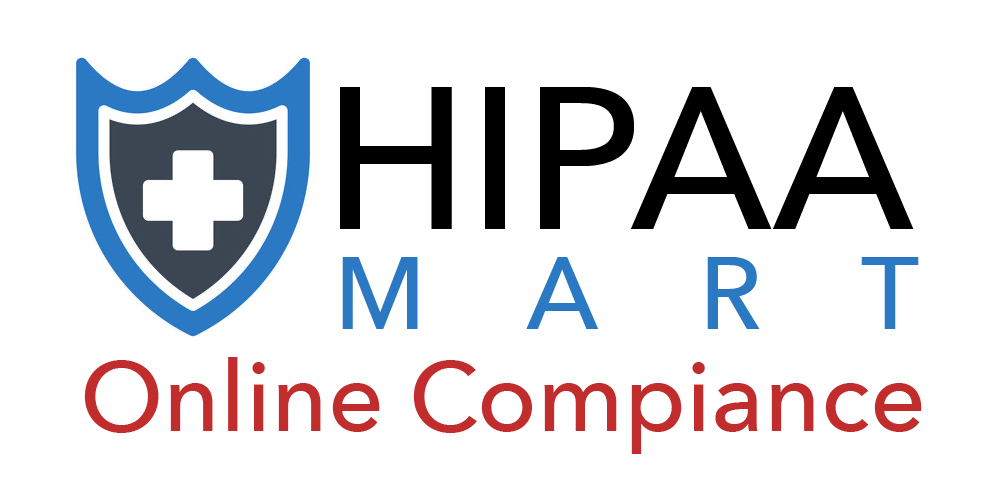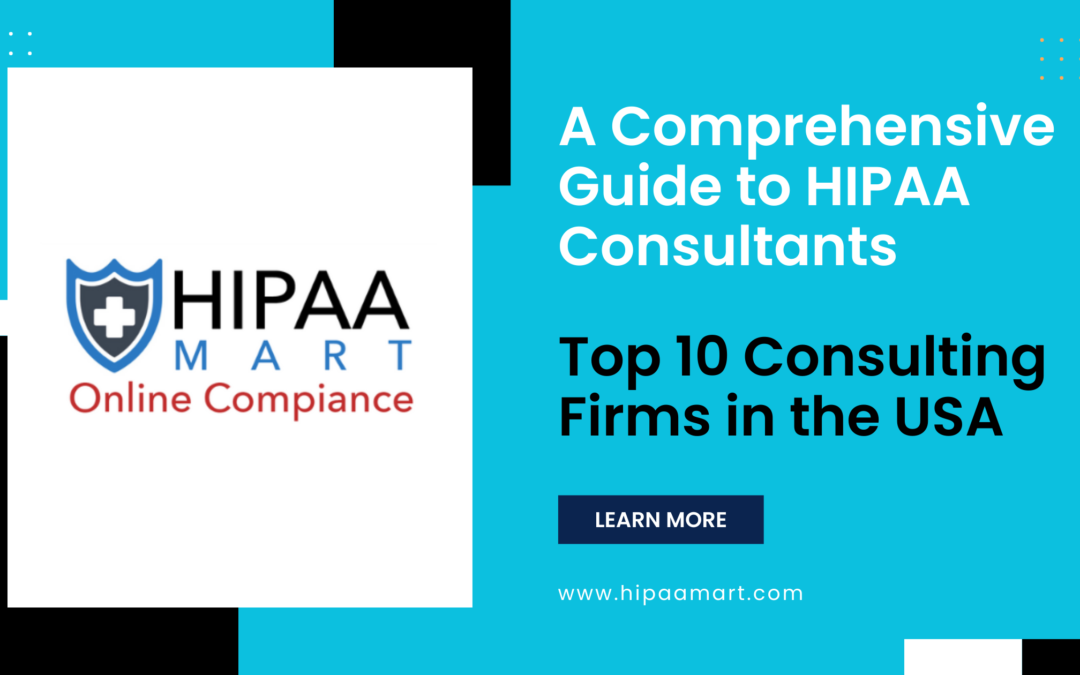In the ever-evolving landscape of healthcare, safeguarding patient information is paramount. The Health Insurance Portability and Accountability Act (HIPAA) serves as the cornerstone for maintaining the confidentiality and integrity of healthcare data. Navigating the complexities of HIPAA compliance often requires specialized expertise, and this is where HIPAA Compliance Consultants come into play.
This blog serves as an extensive guide, covering the roles and responsibilities of HIPAA consultants, a curated list of top consulting firms, cost considerations, pros and cons, and an innovative approach – The Sprinto Way
Who are HIPAA Consultants?
HIPAA consultants are professionals with in-depth knowledge of healthcare regulations, specializing in guiding healthcare entities through the intricacies of HIPAA compliance. They play a pivotal role in helping organizations establish and maintain robust processes to ensure the security of patient information.
HIPAA consultants are professionals who specialize in navigating the complex landscape of the Health Insurance Portability and Accountability Act (HIPAA). With a deep understanding of HIPAA regulations, these experts assist healthcare organizations in assessing their compliance status, developing tailored policies, and training staff.
They play a pivotal role in identifying and mitigating risks, preparing for audits, and guiding organizations through incident response planning. HIPAA consultants are crucial partners, ensuring that healthcare entities adhere to data security standards and maintain compliance with evolving regulations.
Most HIPAA consulting services consist of compliance specialists with an in-depth grasp of HIPAA requirements and associated HIPAA laws.
What are the Roles and Responsibilities of a HIPAA Consultant?
1. Keeping Track of All Your Digital Assets:
HIPAA consultants conduct thorough assessments to ensure a comprehensive inventory of digital assets, from electronic health records to communication platforms. This process mitigates the risk of oversights and strengthens the overall security posture.
2. Conduct a Security Analysis:
A crucial aspect of a HIPAA consultant’s role is to conduct regular security analyses. This involves assessing the organization’s current security measures, identifying vulnerabilities, and providing recommendations for improvements.
3. Prioritize Threats:
With a deep understanding of the threat landscape, HIPAA consultants prioritize potential threats based on severity. This strategic approach allows organizations to focus their resources on addressing the most critical issues first.
4. Automate Threat Mitigation, Redress, and Detection:
To enhance efficiency, consultants often leverage automation tools to streamline threat mitigation, redress, and detection processes. This ensures a swift and effective response to emerging threats.
5. Keep Track of Serious Security Flaws:
HIPAA consultants stay vigilant in monitoring and addressing serious security flaws promptly. Regular updates and patches are applied to prevent potential breaches and maintain a proactive security stance.
6. Create and Test an Incident Management Strategy:
Crafting a robust incident management strategy is essential. HIPAA consultants not only develop this plan but also conduct regular testing to ensure its effectiveness in real-world scenarios.
List of HIPAA Compliance Consulting Firms:
- HIPAA Mart Online:
Known for its expertise in tailored compliance solutions, ABC Healthcare Solutions has a proven track record of guiding organizations through the intricacies of HIPAA. - SecureCompliance Consultancy:
This firm specializes in comprehensive security analyses, helping healthcare entities identify and address vulnerabilities to ensure HIPAA compliance. - MedGuardian Experts:
MedGuardian Experts are recognized for their proactive approach in prioritizing threats and providing strategic solutions to enhance overall security. - ComplianceFirst Solutions:
Offering a wide range of services, ComplianceFirst Solutions excels in automating threat mitigation processes to ensure swift responses to emerging security challenges. - SafeHarbor Consultants:
SafeHarbor Consultants are known for their expertise in keeping track of serious security flaws, providing timely updates and patches to maintain robust security measures. - Integrity Healthcare Advisors:
With a focus on creating and testing incident management strategies, Integrity Healthcare Advisors ensures that organizations are well-prepared to handle security incidents effectively. - ProGuard Compliance:
ProGuard Compliance stands out for its commitment to ongoing support, providing continuous monitoring and assistance to maintain long-term HIPAA compliance. - TrustCure Consultants:
TrustCure Consultants are recognized for their tailored solutions, addressing the unique compliance needs of each healthcare organization they work with. - MedSecure Solutions:
MedSecure Solutions excels in conducting thorough risk assessments, helping organizations identify and mitigate potential vulnerabilities to ensure a secure environment. - Assurance Healthcare Partners:
Assurance Healthcare Partners are known for their holistic approach to compliance, offering services that encompass all aspects of HIPAA regulations.
How Much Does HIPAA Consulting Cost?
The cost of HIPAA consulting varies based on several factors, including the size and complexity of the healthcare organization, the scope of services required, and the level of expertise offered by the consulting firm. This section provides detailed insights into the considerations that impact pricing, offering readers a comprehensive understanding of the costs associated with achieving and maintaining HIPAA compliance.
What are the Pros and Cons of a HIPAA Consultant?

Pros of HIPAA Consultant:
- Expert Guidance:
HIPAA consultants bring specialized knowledge and experience, providing expert guidance to navigate the complex landscape of healthcare regulations. - Tailored Solutions:
Consultants tailor their services to the specific needs of each organization, ensuring that compliance solutions align with the unique challenges faced by healthcare entities. - Risk Mitigation:
By conducting thorough HIPAA risk assessments and implementing proactive measures, consultants contribute to effective risk mitigation, minimizing the likelihood of security breaches. - Ongoing Support:
A key advantage of hiring a HIPAA consultant is the provision of ongoing support. Consultants assist organizations in maintaining compliance amidst evolving threats and regulatory changes.
Cons of HIPAA Consultant:
- Initial Investment:
One of the challenges organizations may face is the initial investment required to engage the services of a HIPAA consultant. However, this should be viewed as a strategic investment in long-term compliance and security. - Dependence on External Expertise:
Organizations may become reliant on external expertise, which can be a potential drawback. It is essential for healthcare entities to build internal capabilities while benefiting from the guidance of consultants.
The Sprinto Way:
An innovative approach to HIPAA compliance, The Sprinto Way represents a hypothetical consulting firm that integrates cutting-edge technology, personalized solutions, and a proactive mindset. This section delves into how The Sprinto Way redefines the landscape of HIPAA compliance, emphasizing efficiency and agility in the pursuit of security excellence.
FAQs:
Why is HIPAA compliance essential for healthcare organizations?
Explore the fundamental reasons why compliance is crucial for protecting patient information and maintaining the integrity of healthcare operations.
How often should a healthcare organization undergo a HIPAA risk assessment?
Gain insights into the frequency of risk assessments to ensure continuous monitoring of potential vulnerabilities.
Can small healthcare practices benefit from hiring a HIPAA consultant?
Understand the specific advantages that small healthcare practices can gain from engaging the services of a HIPAA consultant.
What are the consequences of non-compliance with HIPAA regulations?
Delve into the potential legal, financial, and reputational consequences of failing to comply with HIPAA regulations.
How can organizations ensure continuous compliance with evolving HIPAA rules?
Explore strategies for staying ahead of evolving regulations and maintaining ongoing compliance in a dynamic healthcare landscape.
Conclusion:
In the intricate realm of healthcare compliance, HIPAA consultants are indispensable partners. This comprehensive guide has explored their roles, provided a curated list of top consulting firms, offered insights into cost considerations, and examined the pros and cons. Additionally, The Sprinto Way has been introduced as an innovative approach to achieving HIPAA compliance. As healthcare organizations strive to meet and exceed HIPAA standards, the right consultant becomes a key ally in ensuring the confidentiality and integrity of patient information, ultimately enhancing the overall security posture of the healthcare

